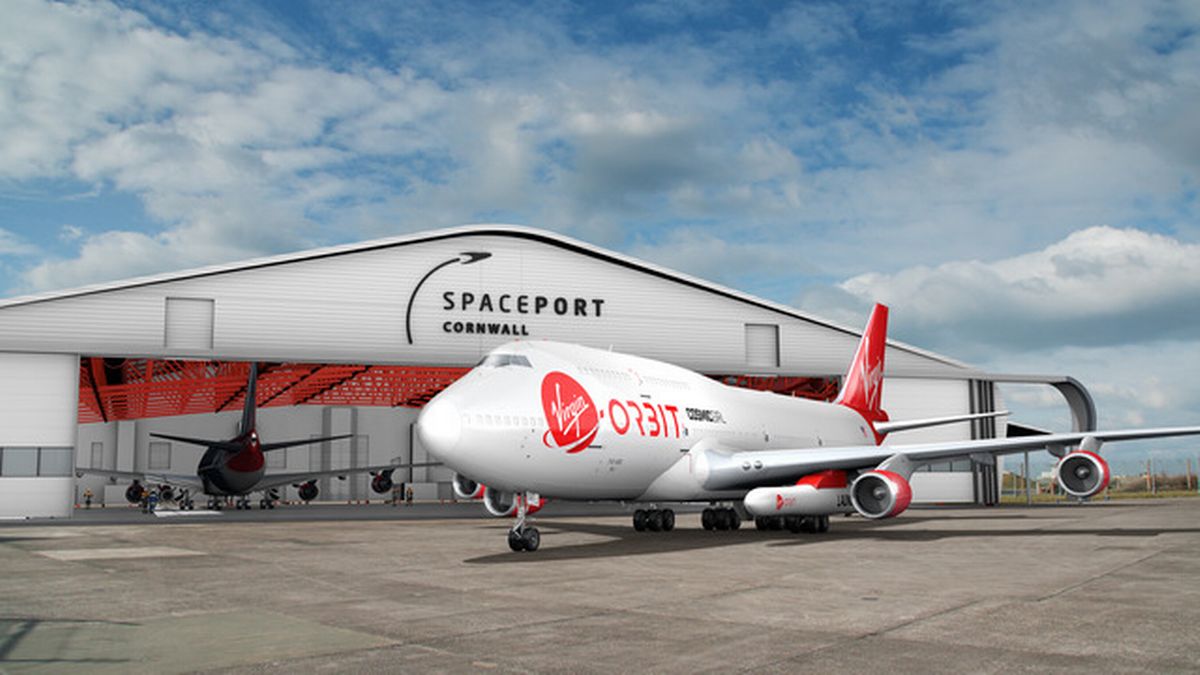The UK Enters a New Stage in the Space Race
12th Oct 2020
The UK is about to enter a new stage of their latest space race as Cornwall Spaceport, one of the first horizontal launch facilities in this country, is getting ready to launch satellites into calculated orbits. Virgin Orbit will become one of the first residents of the new facility. Its modified Boeing 747 will launch satellite-carrying vehicles from its wing. For a detailed overview of UK space initiative, check out an original article at NY Times. For a short synopsis, skip to a shorter version below.
Cornwall Spaceport Importance
Construction plans for Cornwall Spaceport have been under discussion for over six years. This October, the construction will finally start after budgeting a total of £22 million. One of the main reasons why this site may become one of the first launch facilities in the UK is a simple fact that it already has a developed infrastructure. The facility will be built within Newquay airport, with one of the country’s longest runways, making this site perfect for horizontal launches.
Virgin Orbit, owned by billionaire entrepreneur Richard Branson, has been working on horizontal launch tech for quite some time, so Cornwall already has an anchor tenant. Their modified Boeing 747, nicknamed Cosmic Girl, can offer a more affordable small satellite launch solution when compared to traditional vertical launch technology.
Today, when the construction is due to start, no one doubts Cornwall’s potential. Yet, according to Melissa Thorpe, head of engagement on this project, it took a while to convince the public of the importance of this facility.
The spaceport will be owned by the local government and can create around 150 new job opportunities in the area. This will give a much needed boost to the region’s economy and will potentially boost tourism for the surrounding area in the next couple of years.
Notably, Cornwall Spaceport is not the only planned launch site. Several facilities, mostly located in Scotland, are to be constructed in the next few years. Cornwall, however, is the only site that will accommodate horizontal launches for now.
New Space Objectives
Brexit and the UK’s initiative to pull away from the EU played a significant part in a new space course initiated by the country. Today, the UK produces more satellites than any other European country but has no launching sites of its own. Until recently, the UK’s only notable space program was Black Arrow, launched from Australia in 1971.
Fortunately, this situation is about to change. This year’s UK Space Agency budget has seen a 10% rise, with a total sum of £556 million. In comparison to NASA and its total budget of $22 billion, this is but a small fraction, however no one can doubt the optimism and potential for growth in this trend. According to Graham Turnock, chief executive of the UK Space Agency, Brexit has given the local space industry the much needed stimulus for growth.
No doubt, the emergence of all small, cost-affordable satellites also played a big part in the development of the UK space industry. Today, an average small satellite is no larger than a shoebox and can be manufactured at around £1 million. Most of them are now used for research and monitoring, although some others are used to provide internet connection.
Notably, the government does not stop their aerospace investments at building spaceports. The UK government agreed to purchase 45% shares of bankrupt OneWeb, a satellite operator that went out of business after the Covid-19 outbreak. The government believes that purchasing most of OneWeb shares and equipment will play a large part in developing a new space economy.
While the UK’s potential in the space industry keeps improving, the country still has some catching up to do. One of the latest projects the UK was involved in was a joint Russian-European mission on creating a rover for Mars exploration.
Most satellites that the UK are planning to launch will rotate in low-earth orbits. Since the country will deal mostly with small satellites, launching them will be more cost effective than launching larger devices with heavy-class carriers. Virgin Orbit, one of the Cornwall Spaceport primary residents, plans to charge $12 million for launching a 700 lbs payload of satellites into orbit.
Local spaceport construction will also help to optimize the UK’s space budget in the long run. Today, UK based companies are forced to launch their satellites from foreign launch sites however this situation will hopefully change in the next two years. Eventually, launch providers hope to offer even more affordable launches for roughly $10 million or less.
This will give an even more impressive boost to the UK’s space industry. More startup aerospace companies are appearing in the country than ever. Established companies, such as French giants Airbus, have also opened offices in Britain and are employing local talent.
Even though the Covid-19 pandemic has placed many projects on hold and has caused serious disruption for many businesses, Virgin Orbit included, the small satellite launch market continues to grow. With the construction of Cornwall Spaceport and other launch sites on their way, the UK is well on its way to becoming one of the leading countries in the space industry .






Thank you for your comment! It will be visible on the site after moderation.